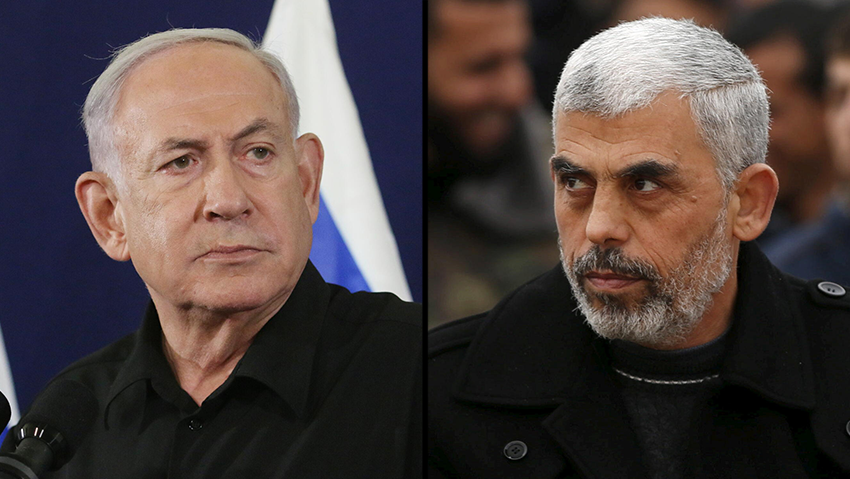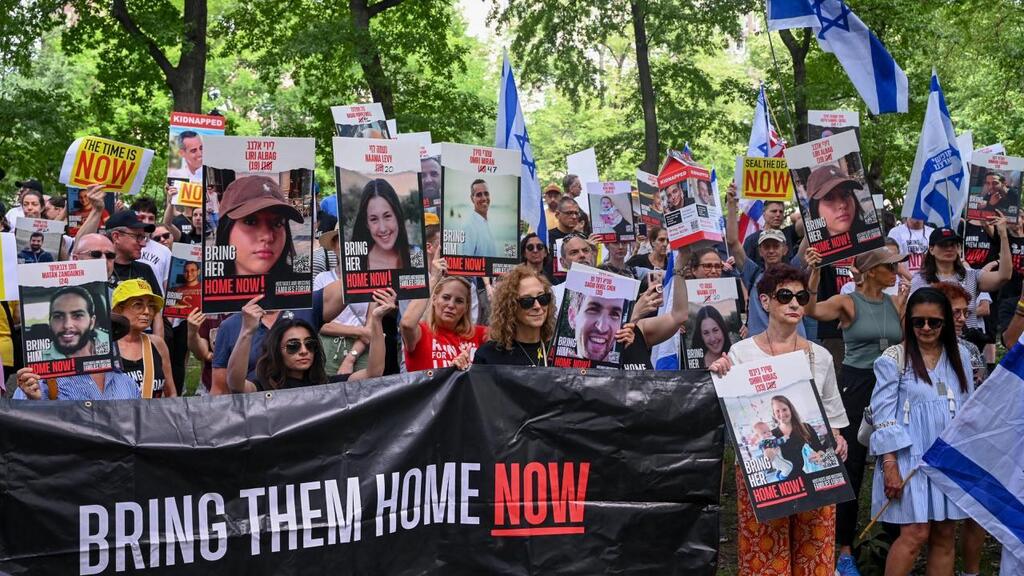Hamas announced Sunday that it has decided not to send representatives to the summit scheduled to take place later in the week, arguing that further rounds of negotiations only prolong the war and provide Israel with legitimacy.
Israeli negotiators are not overly concerned by Hamas’ announcement, understanding it as a tactic to gain leverage. They expect psychological warfare to continue up until the summit, set to be held on Thursday in Doha, Qatar or potentially Cairo.
2 View gallery


Prime Minister Benjamin Netanyahu, Hamas leader Yahya Sinwar
(Photo: Dana Kopel, Reuters)
“We call on mediators to present a plan for implementing what was agreed upon on July 2, rather than engaging in new negotiations," Hamas said in a statement. "Additional rounds of talks or new proposals only serve to cover up the occupation’s aggression and give it time to win its war of extermination.”
Hamas official Osama Hamdan told Hezbollah’s Al-Manar TV that: “There are ideas presented by the mediators that we have accepted, and we are ready to implement them immediately. It is unacceptable to give the enemy more time. Our position is clear, and we are not waiting for discussions on new frameworks or headlines.”
Last week, Israel sent a clarification document to the mediators, which was passed on to Hamas. Both sides are now working around the clock with the mediators to close all gaps – such as the status of the Philadelphi Route, the Rafah crossing, troop movements and the cease-fire – aiming to reach Thursday with a framework that could lead to a deal within a few days.
Israel insists on the release of 33 specific hostages. In the clarifications sent by Hamas, the terror group asked Israel to drop its veto to allow Hamas more flexibility in deciding which Palestinian prisoners would be freed from Israeli jails. However, Israel has made it clear that it will insist on receiving a list of hostages to be released in advance.
The clarification document is critical, and progress cannot be made without it. Additionally, there is no way to reach a hostage deal without resolving issues related to the Philadelphi Route and Rafah, as well as confirming the list of hostages. The goal is to address these key issues before the summit to ensure the talks are productive and a deal can be implemented within a few days.
Before Hamas’ announcement that it would not attend the summit, Israeli officials believed there was a rare and unique opportunity to reach an agreement. They viewed this as a critical window of time that could lead to a desirable outcome for all parties involved. There is strong motivation and support from the mediators to achieve an agreement, and both Israel and Hamas face immense pressure to seize this momentum, which could bring about a cease-fire and the release of hostages. If this opportunity is missed, it could close the door to another deal in the near future.
“This is the first and last opportunity, and it is now,” said a senior Israeli security official before Hamas’ announcement. “We can reach an agreement. This is our last chance to bring the hostages back alive.” CIA Director Bill Burns and President Joe Biden’s special envoy, Brett McGurk, are expected to arrive in the region by Thursday, likely visiting Israel before heading to the summit in Doha or Cairo.


